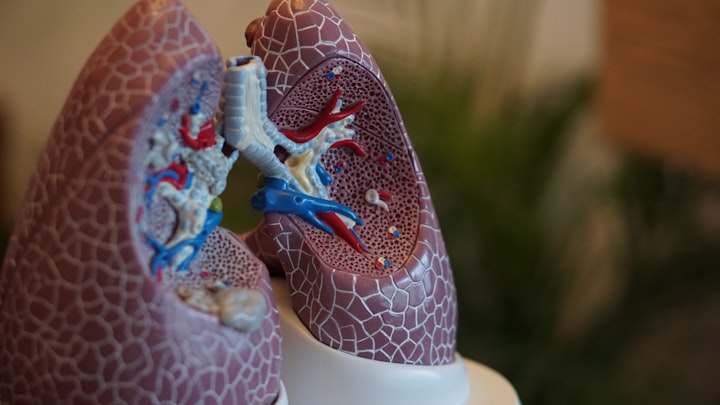Can Artificial Intelligence Predict Lung Cancer in Non-Smokers
Unlocking the Potential of AI in Lung Cancer Detection and Diagnosis

Introduction
Lung cancer is a significant health concern, causing a high number of cancer-related deaths globally. Researchers have now developed an innovative approach to detect lung cancer risk in non-smokers using artificial intelligence (AI) tools and algorithms. In this article, we will explore how AI is revolutionizing lung cancer diagnosis and the potential benefits it offers to patients.
The Seriousness of Lung Cancer

Lung cancer continues to have devastating clinical outcomes, despite advancements in diagnosis and treatment. The stage of the disease at the time of diagnosis plays a crucial role in determining patient survival rates. Unfortunately, only a small percentage of lung cancers are detected at an early stage, resulting in poorer prognosis for the majority of patients. Therefore, the development of effective screening tests has been a long-standing goal in lung cancer care.
Screening Methods

Various screening methods have been explored, including sputum cytology, chest radiographs (CXR), and low-dose computed tomography (LDCT), as well as the analysis of biomarkers. Clinical trials have shown that LDCT scans in heavy smokers can significantly reduce lung cancer-related mortality. However, targeted therapies and immunotherapeutic agents, though improving overall survival, are not effective for all patients. Consequently, early detection remains crucial for enhancing patient outcomes.
The Impact of AI on Lung Cancer

The emergence of AI in the medical field has opened up new possibilities for improving disease identification and treatment. When it comes to lung cancer diagnosis, combining AI systems with clinical and biomedical data can enhance screening processes. AI has the potential to improve the analysis and interpretation of lung images obtained from MRI or CT scans. Additionally, it can help assess the clinical relevance of data from biomarkers, electronic medical records (EMR), and metagenomic data, leading to more accurate lung disease diagnosis.
Existing AI Solutions for Lung Cancer Diagnosis

Numerous AI-driven approaches have been developed for diagnosing lung cancer using LDCT images. One recent breakthrough involves researchers at MIT and the Massachusetts General Cancer Centre. They have developed an AI tool capable of predicting an individual's likelihood of developing lung cancer within the next six years. The unique aspect of this tool is that it focuses on non-smokers, as the majority of existing guidelines primarily cater to current or former smokers. The number of lung cancer cases among non-smokers has been steadily increasing, emphasizing the need for tailored screening methods.
Enhancing Screening for Smokers

Apart from targeting non-smokers, the AI tool also aims to improve screening for individuals who currently smoke or have a smoking history. Current guidelines recommend annual LDCT chest scans for individuals over 50 years of age, but compliance rates are low. By predicting cancer risk up to six years based on a single scan, the AI tool can potentially increase the number of individuals undergoing timely cancer diagnosis.
The Effectiveness of AI

The AI tool demonstrated promising results in identifying cancer within a year, achieving an average Area Under the Curve (AUC) of 0.91 across all three data sets. The data set from Taiwan showed the highest score, with an AUC of 0.94. Even for a six-year prediction, the average AUC remained at 0.79, indicating reliable performance. The algorithm performed better with scans from the training set compared to the testing set, underscoring the need for further refinement and validation.
Conclusion
The integration of AI in lung cancer diagnosis holds immense potential for improving patient outcomes. By leveraging AI tools and algorithms, healthcare professionals can enhance the accuracy of lung cancer screening and identify high-risk individuals, including non-smokers. This technology has the capacity to increase the number of individuals diagnosed with cancer, leading to earlier intervention and improved prognosis.
References:
(MoneyControl - [https://www.moneycontrol.com/news/technology/can-artificial-intelligence-predict-lung-cancer-in-non-smokers-10679311.html)
About the Creator
satish Kumar
Content Strategist, YouTuber, Website Developer & SEO Analyst: Dedicated to Constant Skill Growth






Comments
There are no comments for this story
Be the first to respond and start the conversation.